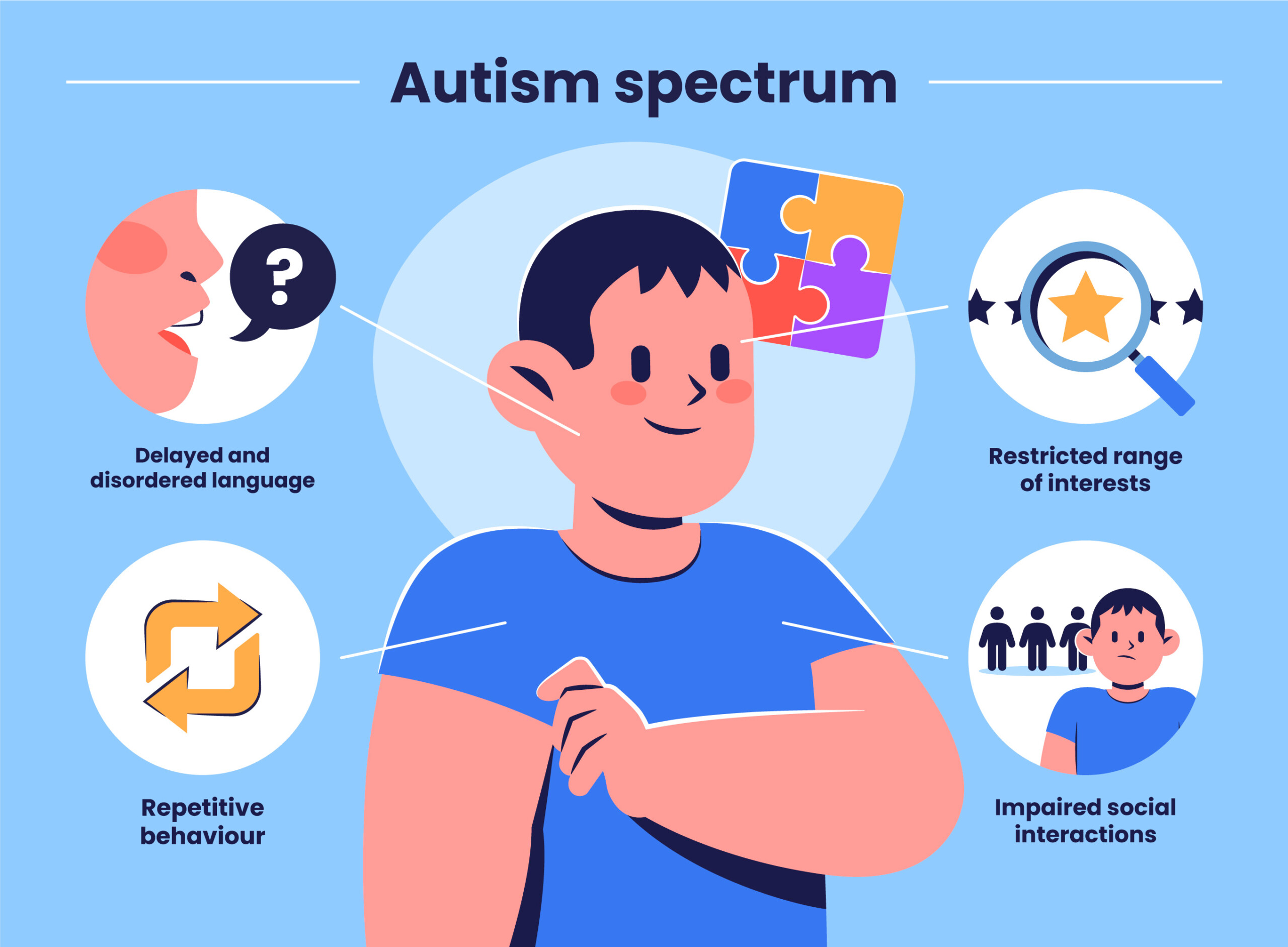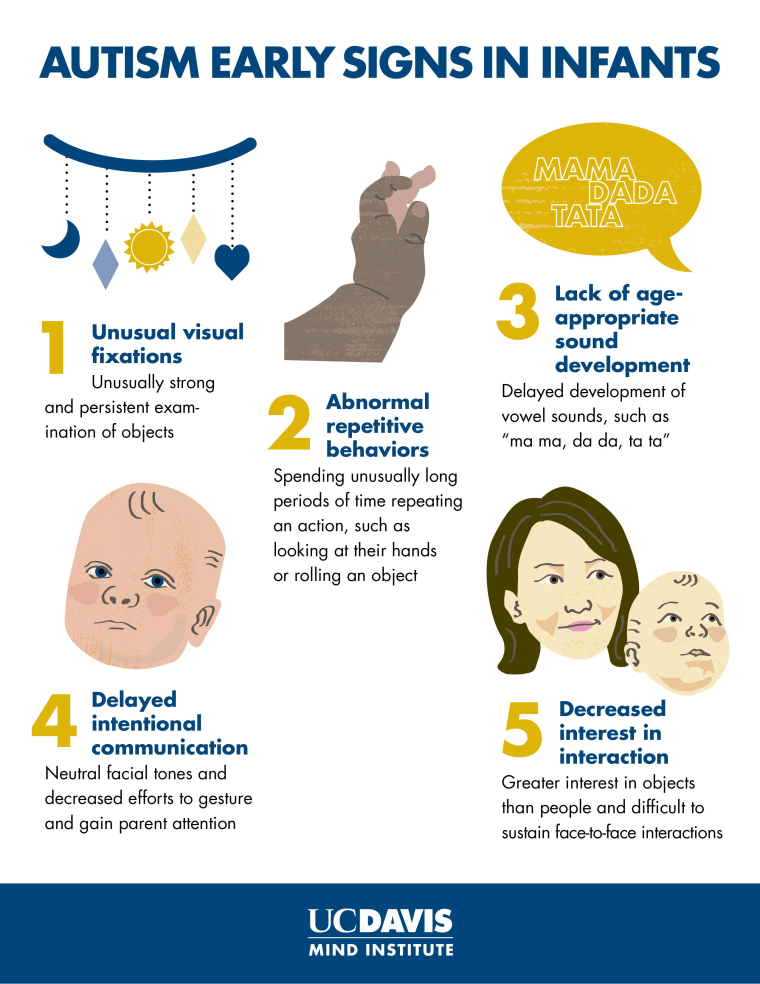Key Symptoms And Signs to Identify in People With Behavior Autism
When you encounter a person with behavior autism, recognizing key indicators and signs is necessary. Furthermore, sensory sensitivities can lead to frustrating experiences.
Difficulties in Social Communications
When you connect with somebody on the autism range, you might see they struggle with social signs and communication. These obstacles can make social interactions feel frustrating for them.
When they do involve, they could chat about their interests in terrific information without seeing if you're interested. Recognizing these challenges can help you approach interactions with empathy and patience, promoting a much more comfy atmosphere for both of you.
Difficulty With Verbal and Non-Verbal Communication

Non-verbal communication can be also extra tough. You may see a lack of eye call or restricted use of gestures, which can make interactions really feel awkward. Faces may not constantly align with the discussion, causing confusion regarding their feelings. Acknowledging these signs is necessary, as it assists you far better support and involve with people on the autism spectrum. By understanding their communication obstacles, you can promote a lot more purposeful connections and offer a more encouraging environment.
Repetitive Habits and Regimens
Interaction challenges commonly accompany other indications of autism, such as repeated habits and a solid preference for routines. You may notice that individuals with autism commonly engage in particular, repetitive activities, like hand-flapping, shaking, or repeating phrases. These habits can give comfort and a sense of control in an usually overwhelming world.
Routines are equally essential; several individuals grow when they comply with an organized routine. You may find that changes to these routines can cause considerable distress. If they have a day-to-day ritual of consuming breakfast at a details time or adhering to a particular path to school, any type of interruption can create anxiety.
Identifying these patterns aids you recognize their actions and supply assistance. By suiting their demand for regular and enabling repeated actions, you can develop a much more comfortable atmosphere that relieves their obstacles.
Sensory Level Of Sensitivities

Typical Sensory Triggers
Sensory level of sensitivities can significantly affect every day life for people with autism, as certain stimulations often trigger overwhelming responses. Common sensory triggers consist of loud sounds, bright lights, and solid smells. You may discover that unexpected audios, like alarms or sirens, cause anxiety or distress. Likewise, fluorescent lights in stores can really feel unpleasant and harsh. Textures can additionally play a considerable function; harsh textiles or particular food appearances might be intolerable for you. Additionally, crowded locations can overwhelm your detects, making it tough to unwind or concentrate. Recognizing these triggers can assist you handle your environment much better. By recognizing what impacts you, you can take steps to decrease discomfort and boost your day-to-day experiences.
Behavioral Actions Explained
Comprehending your behavior reactions to sensory sensitivities is essential, as they usually expose just how you connect with the globe. You might see that certain sounds, lights, or structures overwhelm you, causing stress and anxiety or discomfort. When encountered with these stimuli, you may withdraw, cover your ears, or even respond strongly. These actions aren't just quirks; they're your means of dealing with overstimulation. You may likewise find yourself looking for particular sensory experiences, like deep pressure or quiet environments, to aid ground on your own. Identifying these patterns aids you recognize your needs much better and can guide how you connect them to others. By recognizing your sensory level of sensitivities, you can function towards these details creating a setting that really feels more comfy and manageable for you.
Coping Methods Overview
Identifying your sensory level of sensitivities is just the initial step; currently it's time to explore coping approaches that can aid you manage those experiences efficiently. Start by creating a sensory toolkit customized to your requirements. This can consist of noise-canceling earphones, fidget toys, or soothing fragrances. Establishing a structured regimen can also supply predictability, minimizing stress and anxiety around sensory overload. Take breaks in a silent room to regroup when you feel overloaded. Practicing mindfulness techniques like deep breathing can assist ground you in the moment. Furthermore, communicate your requirements with those around you; having encouraging family and friends can make a big distinction. Remember, discovering what works best for you might take some time, so be open and patient to attempting brand-new methods.
Restricted Interests and Emphasis
While several individuals create a large range of passions, those with autism often demonstrate restricted rate of interests and an extreme focus find on details topics. You could see that somebody with autism can invest hours delving into their preferred subject, whether it's a certain sort of train, a certain film, or a scientific idea. This intense emphasis isn't just a pastime; it can end up being a central component of their identification and social communications.
You might discover that discussions focus on these passions, and they might battle to participate in broader topics. For them, these concentrated passions provide convenience and a sense of proficiency. While it's vital to urge exploration of new subjects, respecting their enthusiasms is equally crucial. By recognizing and recognizing these limited rate of interests, you can cultivate a supportive setting where they really feel valued and recognized, permitting more meaningful links and interactions.
Psychological Guideline Problems
Individuals with autism typically encounter challenges in emotional policy, which can be affected by their intense concentrate on certain interests. You might discover that when an individual is deeply involved in a recommended task, they can experience strong emotions, whether excitement or irritation. When points do not go as planned., this strength occasionally makes it difficult for them to move equipments or handle their sensations - Aba Therapist.

Variability in Developing Turning Points
When it comes to developmental milestones, you'll notice that people with autism usually show a large variety of variability. You might see a child stand out in language abilities yet battle with social communications.
It's important to identify that each individual's journey is one-of-a-kind. Some might establish complicated skills early, just to encounter challenges later. Others may take longer to accomplish fundamental turning points however after that thrive in details areas. Observing these patterns can assist you understand their staminas and needs better.
Often Asked Questions
Just How Is Autism Detected in Children and Adults?
To identify autism in grownups and youngsters, experts examine actions, interaction abilities, and social interactions. If an individual fulfills the standards for autism range condition., they commonly utilize standardized tests, interviews, and monitorings to establish.
Are There Different Sorts Of Autism Range Disorders?
Yes, there are different kinds of autism spectrum conditions, consisting of Asperger's disorder and pervasive developing disorder-not or else defined. Each type varies in extent and features, so recognizing these differences can assist you much better support people with autism.
What Therapies Work for People With Autism?
When taking into consideration efficient therapies for individuals with autism, you'll locate alternatives like Applied Actions Analysis, speech therapy, and job-related treatment. Each approach can help boost communication, social abilities, and everyday functioning customized to private needs.
Can People With Autism Lead Independent Lives?
Yes, individuals with autism can lead independent lives. With the ideal support, skills training, and resources, you can assist them create self-sufficiency, my review here manage everyday tasks, and grow in different settings, cultivating their freedom.
Just How Can Family Members Support Liked Ones With Autism?
You can sustain your enjoyed ones with autism by producing an organized setting, urging their passions, exercising patience, cultivating communication, and advertising social skills. Commemorate their accomplishments, despite how tiny, and build a supportive area.
Although numerous individuals on the autism range can make use of and recognize language, they usually deal with considerable challenges with both spoken and non-verbal communication. Recognizing these indicators is crucial, as it helps you much better assistance and engage with people on the autism range. You may see that people with autism frequently involve in certain, repeated actions, like hand-flapping, rocking, or duplicating phrases.Sensory sensitivities can significantly impact daily life for people with autism, as particular stimuli frequently trigger frustrating reactions.When it comes to developing landmarks, you'll observe that individuals with autism frequently reveal a large variety of variability.